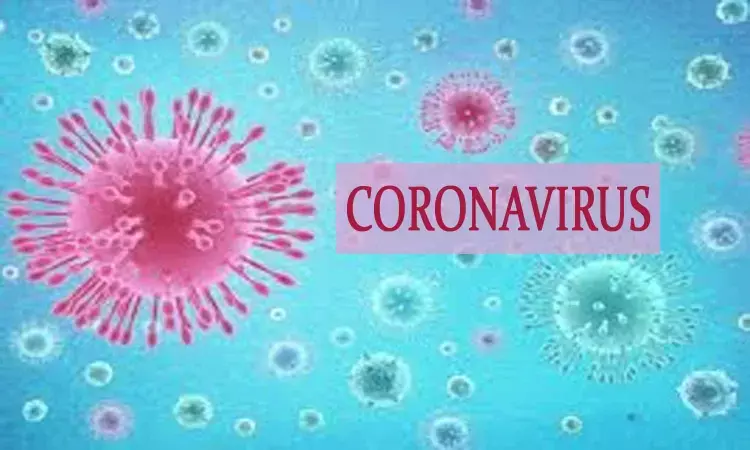- Home
- Medical news & Guidelines
- Anesthesiology
- Cardiology and CTVS
- Critical Care
- Dentistry
- Dermatology
- Diabetes and Endocrinology
- ENT
- Gastroenterology
- Medicine
- Nephrology
- Neurology
- Obstretics-Gynaecology
- Oncology
- Ophthalmology
- Orthopaedics
- Pediatrics-Neonatology
- Psychiatry
- Pulmonology
- Radiology
- Surgery
- Urology
- Laboratory Medicine
- Diet
- Nursing
- Paramedical
- Physiotherapy
- Health news
- Fact Check
- Bone Health Fact Check
- Brain Health Fact Check
- Cancer Related Fact Check
- Child Care Fact Check
- Dental and oral health fact check
- Diabetes and metabolic health fact check
- Diet and Nutrition Fact Check
- Eye and ENT Care Fact Check
- Fitness fact check
- Gut health fact check
- Heart health fact check
- Kidney health fact check
- Medical education fact check
- Men's health fact check
- Respiratory fact check
- Skin and hair care fact check
- Vaccine and Immunization fact check
- Women's health fact check
- AYUSH
- State News
- Andaman and Nicobar Islands
- Andhra Pradesh
- Arunachal Pradesh
- Assam
- Bihar
- Chandigarh
- Chattisgarh
- Dadra and Nagar Haveli
- Daman and Diu
- Delhi
- Goa
- Gujarat
- Haryana
- Himachal Pradesh
- Jammu & Kashmir
- Jharkhand
- Karnataka
- Kerala
- Ladakh
- Lakshadweep
- Madhya Pradesh
- Maharashtra
- Manipur
- Meghalaya
- Mizoram
- Nagaland
- Odisha
- Puducherry
- Punjab
- Rajasthan
- Sikkim
- Tamil Nadu
- Telangana
- Tripura
- Uttar Pradesh
- Uttrakhand
- West Bengal
- Medical Education
- Industry
Bronchoscopy during COVID-19 pandemic: CHEST/AABIP Guidelines

American Association for Bronchology and Interventional Pulmonology and expert panel has released guidelines for Use of Bronchoscopy During the COVID-19 Pandemic.The guideline and expert panel report have been published online in the journal Chest.
The coronavirus disease 2019 has swept the globe and is causing significant morbidity and mortality. Given that the virus is transmitted via droplets, open airway procedures such as bronchoscopy pose a significant risk to health-care workers (HCWs). The goal of this guideline was to examine the current evidence on the role of bronchoscopy during the COVID-19 pandemic and the optimal protection of patients and health-care workers.
The systematic review and critical analysis of the literature based on six PICO questions resulted in six statements: one evidence-based graded recommendation and 5 ungraded consensus-based statements.
The evidence on the role of bronchoscopy during the COVID-19 pandemic is sparse. To maximize protection of patients and HCWs, bronchoscopy should be used sparingly in the evaluation and management of patients with suspected or confirmedCOVID-19 infections.
CHEST and the American Association for Bronchology and Interventional Pulmonology participated in selecting the 14 panelists. "The recommendation and suggestions outlined in this document were specifically created to address what were felt to be clinically common and urgent questions that frontline clinicians are likely to face," wrote lead author and panel cochair Momen M. Wahidi, MD, MBA, of Duke University, Durham, N.C., and colleagues.
Only one of the six recommendations is based on graded evidence; the remainder are ungraded consensus-based statements. The guideline consists of the following recommendations for performing or using bronchoscopy:
Summary of Recommendations
1. When patients with suspected or confirmed COVID-19 infection are undergoing bronchoscopy,we suggest that health care workers in the procedure and recovery rooms use either an N-95 respirator or a powered air purifying respirator .
2. In patients suspected of having COVID-19 infection, we suggest that a nasopharyngeal specimen be obtained first. In the setting of severe or progressive disease requiring intubation, if additional specimen is needed to establish a diagnosis of
COVID-19 or other diagnosis that will change clinical management, lower respiratory specimens from endotracheal aspirate or bronchoscopy with bronchoalveolar lavage Q11 (BAL) can be performed
3. When asymptomatic patients present for bronchoscopy in an area where community spread of COVID-19 is present, we suggest that health care workers in the procedure room wear N-95 respirators or powered air-purifying respirators as opposed to surgical masks .
4. Prior to performing bronchoscopy in asymptomatic patients in an area where community transmission of COVID-19 infection is present, we suggest testing for COVID-19 infection .
5. When bronchoscopy is indicated to diagnose, stage, or characterize a known or suspected lung cancer in an area where community transmission of COVID-19 is present, we suggest that bronchoscopy be performed in a timely and safe manner (Grade 2C).
6.Base the timing of bronchoscopy in patients recovering after COVID-19 on the indication for the procedure, disease severity, and time duration since symptoms resolved. The recommendation noted that the exact timing is still unknown, but that a wait of at least 30 days after symptoms recede is "reasonable."
The expert panel added a noteworthy caveat to the recommendations. "We would like to stress that these protective strategies can be rendered completely ineffective if proper training on donning and doffing is not provided to HCW," Dr. Wahidi and colleagues wrote. "Proper personnel instruction and practice for wearing PPE should receive as much attention by health facilities as the chosen strategy for protection."
For more details click on the link: doi: 10.1016/j.chest.2020.04.036.
Hina Zahid Joined Medical Dialogue in 2017 with a passion to work as a Reporter. She coordinates with various national and international journals and association and covers all the stories related to Medical guidelines, Medical Journals, rare medical surgeries as well as all the updates in the medical field. Email: editorial@medicaldialogues.in. Contact no. 011-43720751
Dr Kamal Kant Kohli-MBBS, DTCD- a chest specialist with more than 30 years of practice and a flair for writing clinical articles, Dr Kamal Kant Kohli joined Medical Dialogues as a Chief Editor of Medical News. Besides writing articles, as an editor, he proofreads and verifies all the medical content published on Medical Dialogues including those coming from journals, studies,medical conferences,guidelines etc. Email: drkohli@medicaldialogues.in. Contact no. 011-43720751


